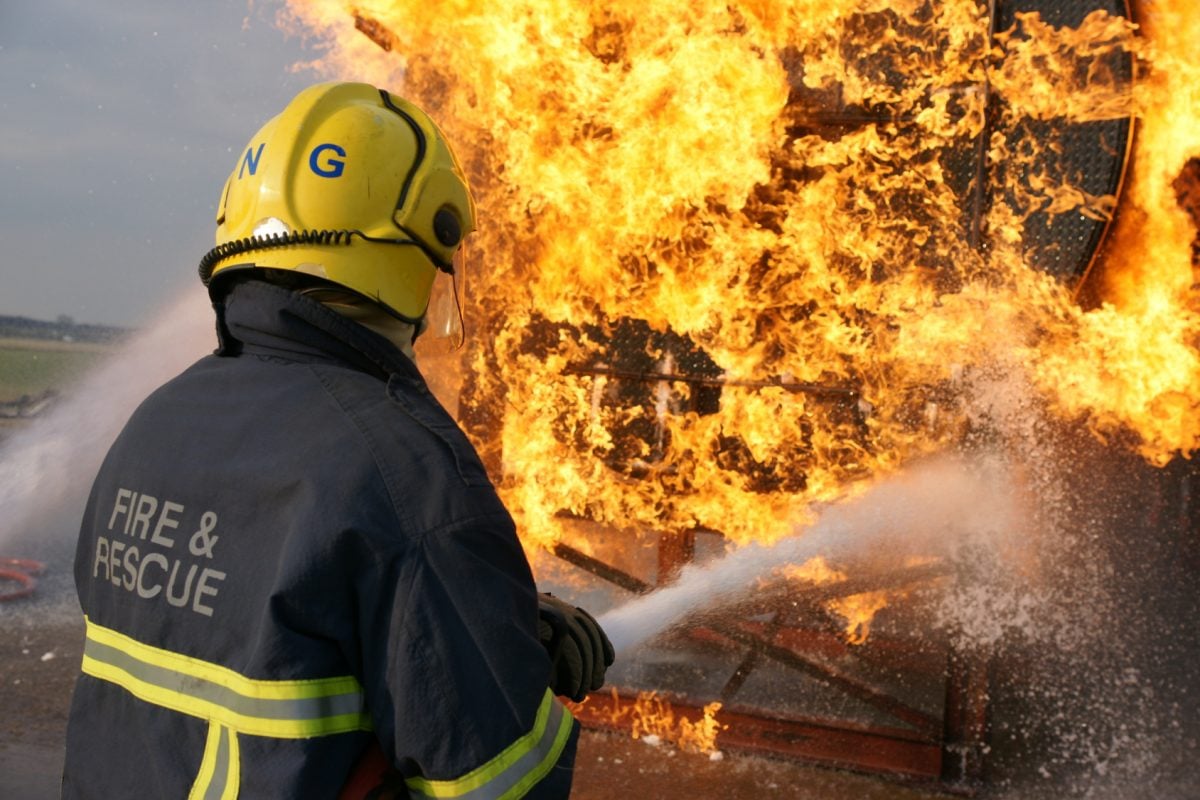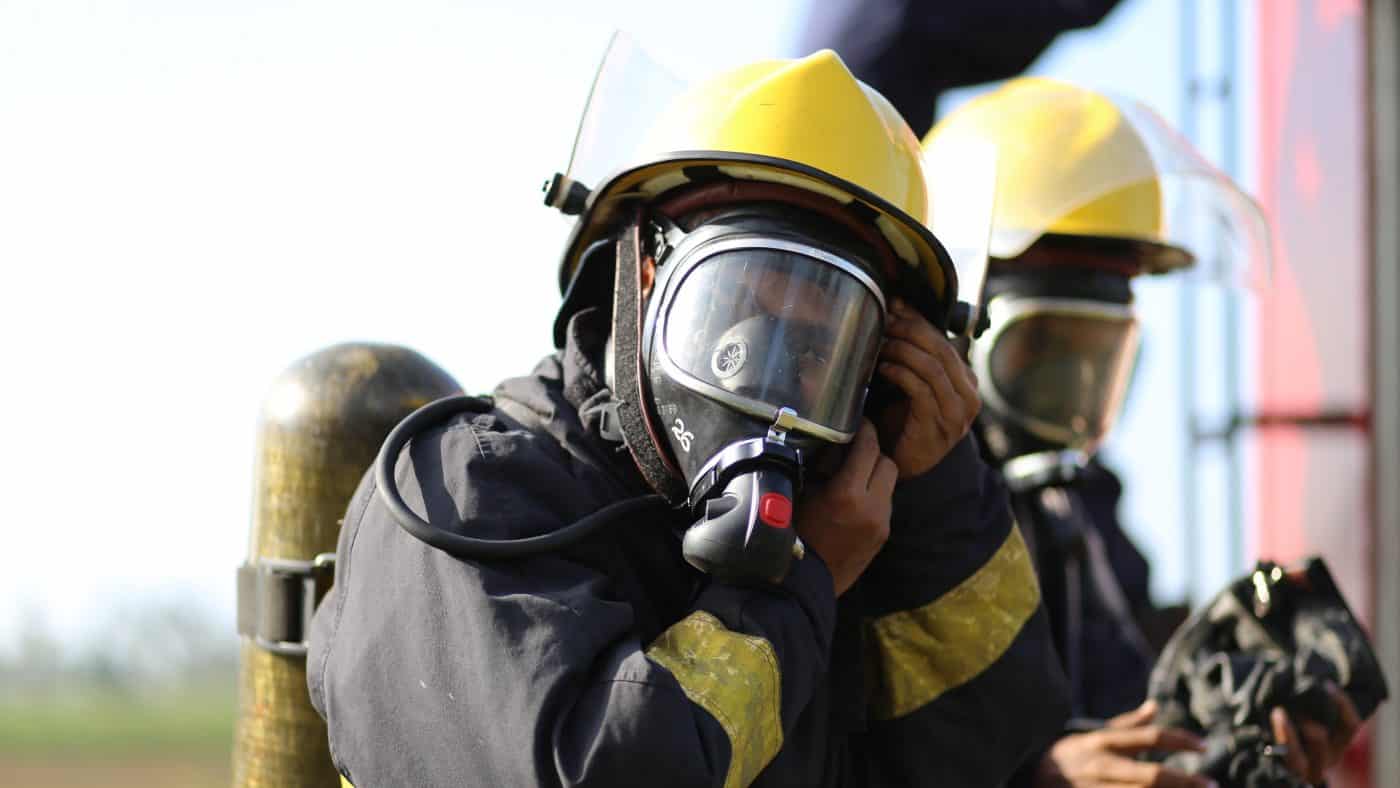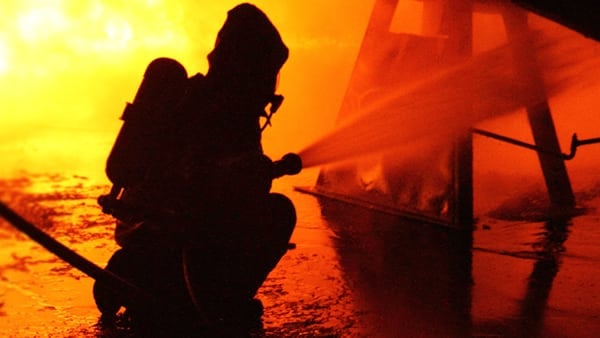There are various Fire and Rescue services in the United Kingdom, but one thing they all have in common is that they all operate to the highest possible standards, and that they are respected by the residents of the UK. The Fire Service manages to do this, by only hiring candidates who adhere to the Firefighter Eligibility Criteria, and the PQAs.
Working as a firefighter is a position that commands great respect, but this respect has to be earned. This is a job like no other, which requires the utmost bravery and commitment. Therefore, naturally, there are strict requirements on who can and can’t become a Firefighter. In this blog, we’ll give you the breakdown on all the Firefighter Eligibility Criteria.
If you’re interested in finding out more about becoming a Firefighter, check out our excellent guide!
Personal Qualities And Firefighter Eligibility Criteria
The majority of the firefighter selection process is structured around what are known as the Personal Qualities and Attributes (PQAs). This is a essential element to the Firefighter Eligibility Criteria, which you must study up on prior to application.
When you make your application to join the fire service, you should be supplied with a copy of these important qualities. If you are not provided with them you can quite easily obtain a copy of them by searching for them on the internet, as they are freely available within the public domain.
These important Firefighter Eligibility Criteria qualities form the basis of the role for an operational firefighter, and therefore it is imperative that you use them as a basis for your preparation. When you complete the firefighter application form, you should have a copy of the PQAs next to you. When you prepare for the interview, you should have a copy of the PQAs next to you. When researching the role of a firefighter you should have a copy of the PQAs next to you.
You will be assessed in relation to the qualities throughout the varying sections of the selection process, from the initial application form through to the interview. Therefore, it is essential that you understand what the PQAs involve, and all about the Firefighter Eligibility Criteria
The Personal Qualities and Firefighter Eligibility Criteria essentially cover the following areas:
- Demonstrating a commitment to diversity and integrity;
- Being open to change within the Fire service;
- Demonstrating a level of confidence and resilience;
- Having an ability to work with other people;
- Being an effective communicator;
- Commitment to development;
- Having the ability to solve problems;
- Being aware of situations around you;
- Demonstrating a commitment to excellence.
Because these qualities are so important to your preparation when applying to the Fire service, we need to take a further look at each of them individually. Read them carefully and ask yourself whether you would be capable of demonstrating the requirements of each quality:
Demonstrating a Commitment to Diversity and Integrity
This means that you should be able to treat people fairly, both at work and within the community. Of course, having an awareness of your community is very important to the firefighter’s role. When
you deal with people, both at work and within the community that you are serving, you should always maintain an open approach and accept differences such as social background, age, ethnicity, gender, disability, sexual orientation, and physical appearance.
When you join the Fire service you will be expected to uphold the relevant values, be honest, and be accountable for your own actions. Finally, if whilst at work you notice someone behaving in an unacceptable manner, then you should be prepared to challenge that behaviour if it is inconsistent with the values of the Fire service.
Being Open to Change Within the Fire service
The Fire service is an ever-changing organisation. As with any organisation that has a desire to continually improve, change is a must. So, before you apply to join the Fire service, it is important you understand this and want this. During your career as a firefighter there will be many different changes to working practices that you will need to embrace. As technology and safety procedures/ equipment improves, so will the need for working practices and procedures within the Fire service.
When you join the Service, you will undoubtedly attend many incidents but there is also a preventative side to the job. You will need to be willing to participate in Community Fire Safety activities such as educating the public and schoolchildren. After all, their safe future is in your hands. Teach them well now, and they will hopefully be safe for their entire lives. This move from ‘reactive’ to ‘proactive’ is one of the biggest changes that the profession has gone through during the last 50 years.

Demonstrating a Level of Confidence and Resilience
As you can imagine, as a firefighter you will attend some tough incidents. These incidents will test your physical strength, your emotional stability, and your ability to remain calm when all around you is going wrong. When people are leaving burning buildings, you will be running in, using your skills and your equipment to save life and property. Therefore, with all of this in mind, you must be able to remain in control of your emotions during emergency incidents.
You must be able to remember your training and procedures and concentrate on the task at hand, despite the pressure of the incident, and the panicking public around you. What would you do as a firefighter if things didn’t go to plan during an incident? Would you lose confidence in your abilities or would you knuckle down, get the job done and then learn from any mistakes afterwards?
Having an Ability to Work with Other People
Of course, firefighters have to work in teams. The size of the team will depend on a number of factors including the nature of the task in hand. However, as a rule of thumb they usually work in teams ranging from 2 to 20 people. Therefore, having an ability to work effectively as a member of a team is crucial to the role. In order for a team to work effectively and efficiently, the members of that team need to have a productive relationship. They don’t necessarily have to personally like each other, but they need to have a good, strong, working relationship. As a firefighter you will work with many different teams, including members of different services such as Police and Ambulance crews. As with other members of the emergency services, you will need to have an ability to reassure and calm members of the public.
Working as part of a team also means there is a requirement for each individual to be aware of the wider team goals. For example, you may be asked by your Watch Manager to give a Community Fire Safety talk to a group of school children at short notice. Would you be able to prepare in time, and would you have the skills required to deliver the presentation?
Finally, when you are working in the community, you will need to present a positive image of the Fire service. Naturally, you will be proud to work as a firefighter and this must come across in your day-to-day work. The Fire service has an important and respected image to protect and it will be your job as a firefighter to uphold it.
Being an Effective Communicator
As a firefighter, you will be communicating with a wide variety of people on a daily basis, ranging from members of your team through to members of the public at emergency incidents. How you communicate to these distinct groups is important. For example, if you were giving a Community Fire Safety talk to a group of school children, then you would need to adapt your communication style to suit children instead of, for example, a group of mature students. Also, you must be able to communicate with small groups of people and also large groups.
On occasions you will need to educate the public following incidents where a person has either lost their life or become injured as a result of a fire. Let us assume that there has been a fire in a house where the owner did not have a working smoke alarm. What do you think you would need to do as a firefighter following the incident?
The right thing to do would be to visit the residents in the local neighbourhood to offer them fire safety advice, and to check that each household had a working smoke alarm fitted. When talking to these people you would need to be sensitive to the fact that a fire had occurred in their neighbourhood, and as a result they could be feeling frightened or vulnerable.
At emergency incidents you will be required to send important messages over the radio, either to other members of your team or to the central control that deals with all vehicle movements and deployments. It is imperative that once you have sent a message you check to see that the other person has received it. Checking and confirming that messages have been received and understood is an integral part of a firefighter’s role.
Commitment to Development
This personal quality involves the firefighter proactively reviewing their own performance, mainly through seeking feedback from others. Once areas for improvement have been identified, it is then up to them to take steps and make the improvements happen.
Alongside this, they will be expected to have a desire to learn from their colleagues, whether this is through official courses or training programmes, or more casually. In turn, firefighters are also expected to be ready and willing to share their own knowledge for the benefit of their colleagues.

Having the Ability to Solve Problems
Firefighters are generally excellent problem solvers. They need to have a knack of fixing things using innovative and practical solutions. In other words, they can usually generate more than one solution to a problem and carry out their work in a logical and systematic manner, despite the pressures of an incident.
As a firefighter you will need to be able to remember your training and procedures whilst using your skills to resolve problems quickly and competently. You will need to be safe at all times and work in accordance with health and safety procedures in order to minimise the risk to yourself, your work colleagues, and the general public.
Relevant to this, during the selection process you will be assessed on your ability to work with numbers. The reason for this type of assessment is that you will be required to apply task procedures using addition, subtraction, division, and multiplication as an operational firefighter.
Being Aware of Situations Around You
Firefighters must be able to work safely at all times, both at the fire station and also during operational incidents. During your training you will learn the concept of ‘risk assessment’. This is a relatively simple process that is designed to protect you and your work colleagues from the hazards that are around you whilst at work.
You will need to keep checking your working environment for the dangers that are present and then take steps to minimise the risks. You will then need to inform the rest of your team about the dangers so that they are safe from harm.
Demonstrating a Commitment to Excellence
Throughout your career as a firefighter, you will need to look for ways to improve the standards of your work and that of people around you. Being committed to delivering an excellent service is all part and parcel of the job. You will need to be comfortable with carrying out every day routine tasks, while understanding that they must be done competently in order to maintain high standards.
Your approach to every working task will need to be professional, which will require you to maintain appropriate levels of fitness.
Another constant commitment you will need is self-discipline. You will always be operating under specific discipline procedures, and will often be working unsupervised without being constantly checked by your supervisory manager.
To sum up, you need to demonstrate a commitment to delivering an excellent service to the public, which of course will need to be done on many fronts.
So, as you can see, the personal qualities that you will be required to demonstrate during the firefighter selection process are comprehensive, and can be studied and learnt! For certain, the PQAs will form the basis of your preparation.
When completing the application form and preparing for the interview, make sure you have a copy of the PQAs and the Firefighter Eligibility Criteria next to you. You should be able to obtain a copy of the PQAs from the Fire service you are applying to join.
Other Essential Firefighter Eligibility Criteria
In addition to the firefighter PQAs, there will also be a number of other requirements that you will have to meet. These can vary, but the more common requirements include:
- Have a minimum age of 18;
- Have a good all-round fitness;
- Pass both written and practical tests;
- Be able to work in a No Smoking environment;
- Have the ability to meet specific eyesight standards;
- Pass the Fire service medical;
- Be willing to work the shift pattern appropriate to the organisation you are applying to join;
- Be prepared to be posted anywhere within the Fire service area you join;
- Have no unspent criminal convictions.
NOTE – We strongly advise that you confirm the exact entry requirements with the Fire service you are applying to join, as these can vary.


